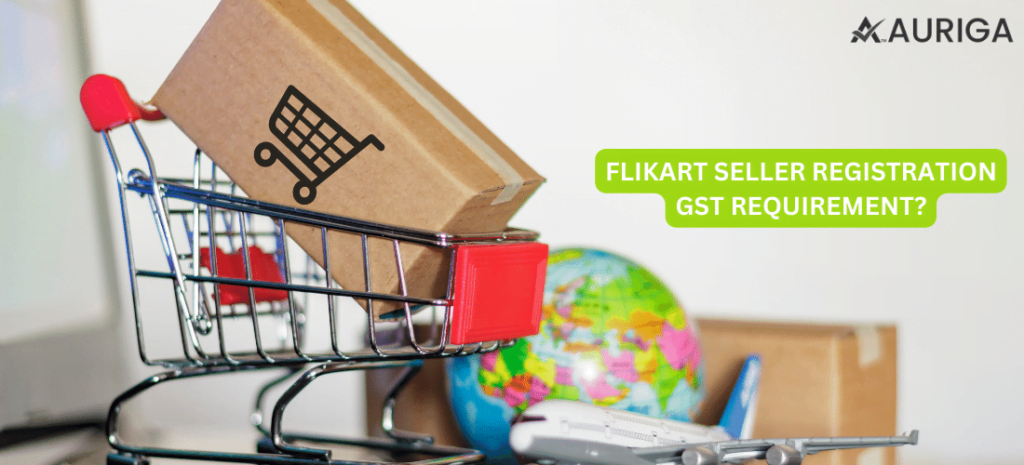FLIPKART SELLER REGISTRATION GST REQUIREMENTS ?
Introduction
Toggle
FLIPKART SELLER REGISTRATION GST REQUIREMENTS?
INTRODUCTION
If you are a seller on Flipkart, you are required to register for GST if your annual turnover exceeds the threshold limit of Rs. 40 lakhs (for goods) or Rs. 20 lakhs (for services). This is irrespective of whether you are selling goods or services on Flipkart or any other e-commerce platform.
The GST registration process is relatively straightforward and can be done online through the GSTN portal. You will need to provide some basic information about your business, such as your PAN card, address proof, bank account details, and photographs. You will also need to upload a copy of your GST registration certificate.
Once you have registered for GST, you will need to generate and upload e-invoices for all your sales on Flipkart. The e-invoices must be authenticated by the GSTN and a unique invoice reference number (IRN) will be generated. The IRN can be used to track and verify invoices.
Here are the documents required for GST registration as a Flipkart seller:
- PAN card of the applicant or the organization, depending on the business structure.
- Business registration documents for entities other than sole proprietorships.
- A current bank account in the name of the business.
- At least one product to sell on the platform.
- An active mobile number and email ID for communication purposes.
You can register for GST on the GSTN portal at www.gst.gov.in.
Here are the steps on how to register for GST as a Flipkart seller:
- Go to the GSTN portal.
- Click on the “Register” tab.
- Select “Individual” or “Organization” as the type of taxpayer.
- Enter your PAN card number and click on “Proceed“.
- Enter your business details, such as the name of the business, the type of business, and the address of the business.
- Upload a copy of your business registration documents.
- Upload a copy of your PAN card.
- Upload a photograph of yourself.
- Click on “Submit”.
The GSTN will review your application and will issue your GST registration certificate within a few days.
ADVANTAGES
Access to a Large Customer Base: Flipkart provides access to a vast customer base, allowing sellers to reach a wide audience and potentially increase sales.
Ease of Setup: Flipkart offers a user-friendly platform for sellers to register and list their products. The registration process includes guidance on GST compliance.
GST Guidance: Flipkart provides resources and assistance to help sellers understand and meet GST requirements. They may offer guidance on GST registration, return filing, and compliance.
Competitive Advantage: Selling on Flipkart can give sellers a competitive edge in the online marketplace, as it is a well-known and trusted platform.
Integrated Tax Calculations: Flipkart often integrates tax calculations into the selling process, which can simplify the calculation and collection of GST from customers.
DISADVANTAGES
GST Compliance Responsibility: While Flipkart may provide guidance, the ultimate responsibility for GST compliance lies with the seller. Sellers must ensure they are correctly registered and filing GST returns on time.
Complexity: GST compliance can be complex, especially for sellers with a high volume of transactions or those selling in multiple states. Sellers may need to hire professionals or use software to manage their GST requirements effectively.
Additional Costs: Complying with GST requirements may involve additional costs, such as hiring a GST consultant or purchasing accounting software. Additionally, GST itself can increase the tax liability of sellers.
Penalties for Non-Compliance: Non-compliance with GST regulations can result in penalties and legal issues. Sellers need to stay updated on changing GST rules and ensure they are following them correctly.
Accounting and Record-Keeping: Sellers must maintain accurate records of all transactions, which can be time-consuming and require dedicated accounting resources.
CONCLUSION
Overall, the advantages of GST registration outweigh the disadvantages. However, it is important to weigh the pros and cons carefully before deciding whether or not to register for GST.
If you are a small seller, you may be able to opt for the composition scheme under GST. This scheme allows you to pay a flat rate of tax, which can be simpler to comply with.
You should also consult with a GST expert to get more information about the GST registration requirements and the benefits and drawbacks of registering for GST.
HOW AURIGA ACCOUNTING HELP YOU
GST Registration:
- Assessment: Auriga Accounting can assess your business to determine whether you need to register for GST based on your turnover and the nature of your products.
- Documentation: They can help gather and prepare the necessary documents required for GST registration, such as PAN, Aadhar, bank account details, and business documents.
- Application Submission: They can assist in filling out and submitting the GST registration application on your behalf through the GST portal.
2.GST Compliance:
- Return Filing: Auriga Accounting can help you file your GST returns accurately and on time, ensuring compliance with GST laws.
- Record-Keeping: They can guide you in maintaining proper records of your sales and purchases, which is crucial for GST compliance.
- Tax Calculations: Professionals can assist with the calculation of GST liability and help you claim input tax credits.
- GST Audit: In case of a GST audit, they can provide support and ensure that all required documentation is in order.
3. Flipkart Seller Registration:
- Account Setup: Auriga Accounting can help you set up your seller account on Flipkart, including the verification process.
- Product Listing: Assistance in listing your products on the Flipkart platform, including product descriptions, images, and pricing.
- Inventory Management: They can guide you on managing your inventory effectively on Flipkart.
4. Taxation Advice:
- Provide advice on the tax implications of your business activities on Flipkart, including any interstate sales and applicable GST rates.
5. Regular Updates and Compliance Checks:
- Keep you informed about changes in GST regulations and e-commerce policies to ensure ongoing compliance.



